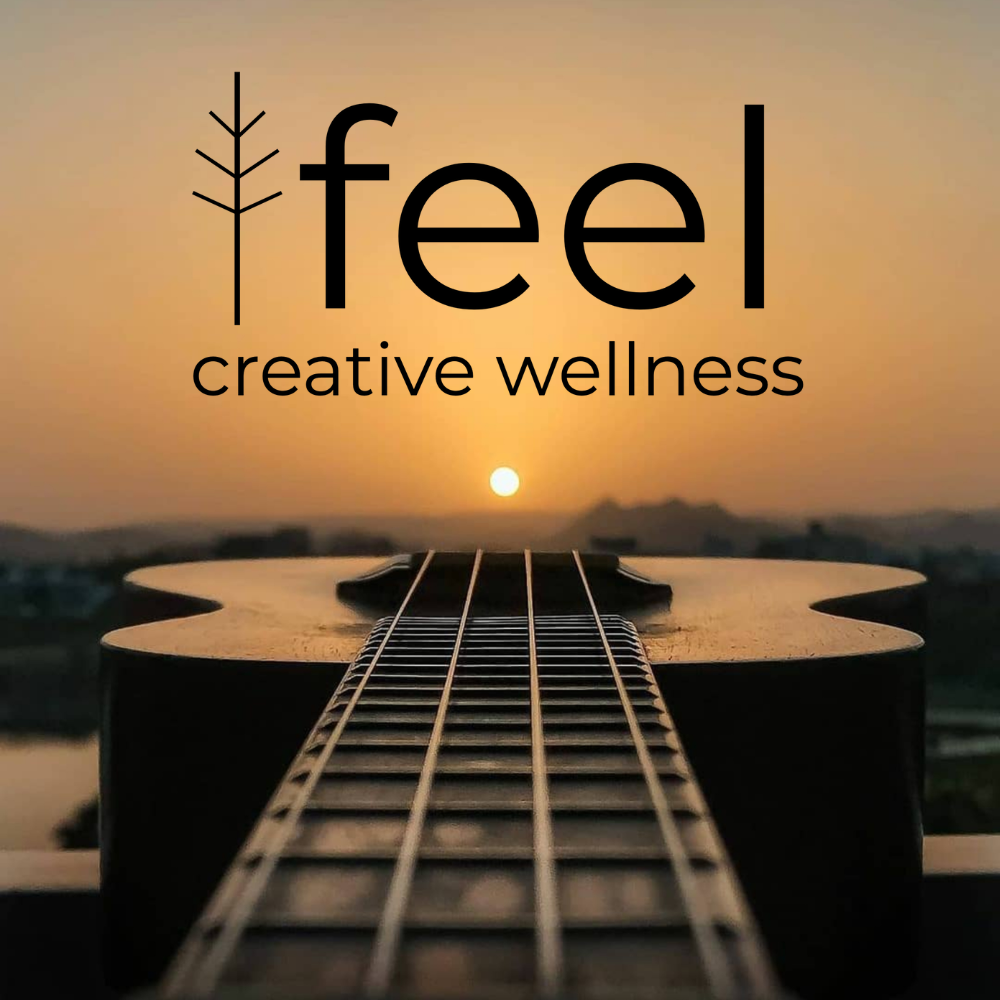Considering therapy in the New Year? 8 reasons why Music Therapy may be a good fit.
It’s no secret that we are facing a global mental health crisis, and it’s time to get creative as we look toward 2024.
According to the National Institute of Mental Health (NAMI), more than 1 in 5 U.S. adults live with a mental illness, which includes all mental, behavioral, and emotional disorders (like anxiety disorders, depression, PTSD, bipolar disorder, or personality disorders) ranging from no impairment to severe impairment. Astoundingly, even though 57.8 million adults in America suffered from mental illnesses in 2021, less than half of them received mental health services! People are simply not getting the support they need. There are many possible reasons for this, including (but certainly not limited to): therapist burnout from the COVID-19 pandemic, lack of quality providers, the stigma attached to receiving mental health support, lack of access, lack of financial means, fear of what might be “unpacked” in therapy, or difficulty finding the right therapist. For others (and maybe that’s you, too), they’ve tried traditional ‘talk’ therapy and haven’t found success. Or perhaps they did find success with traditional therapies in the past but now feel “stuck” or “blocked.”
For that, it may be time to try a more experiential form of therapy: music therapy.
Music Therapy is an established profession with decades of supporting research. Board-certified music therapists have degrees and rigorous training in Music Therapy, hold individual state licenses, and are nationally credentialed to provide music therapy, a non-traditional form of therapy that uses music as a primary tool within sessions. That means, in addition to talking, music therapists use the creative process to help clients explore and process experiences and emotions that are relevant to their healing.
Music therapy can look like:
Choosing and sharing songs in therapy sessions to express how you feel
Writing a song together to help you explore and regulate your emotions, rather than suppress them
Using musical instruments to “play” different feelings or “talk” about hard things when the words won’t come easily, and more!
So if you are considering therapy, swipe through the slides for 8 reasons why Music Therapy may be a good fit for you:
Interested in learning more? Contact me to request a free 20-minute consultation.











